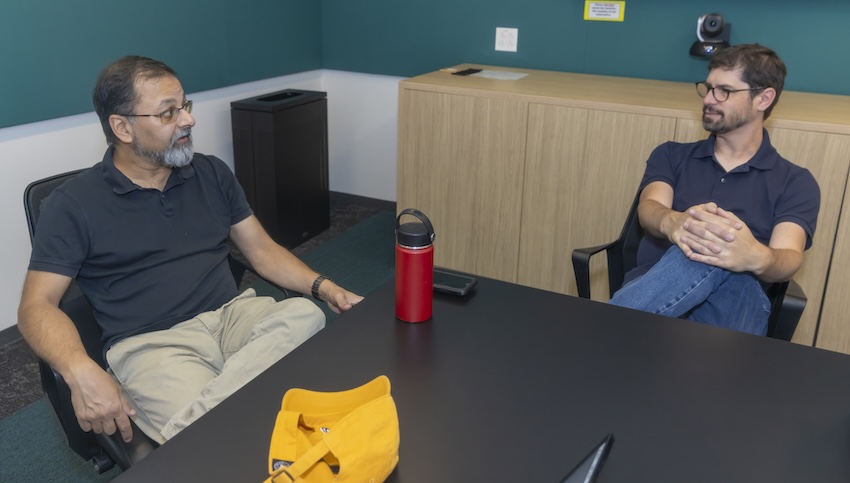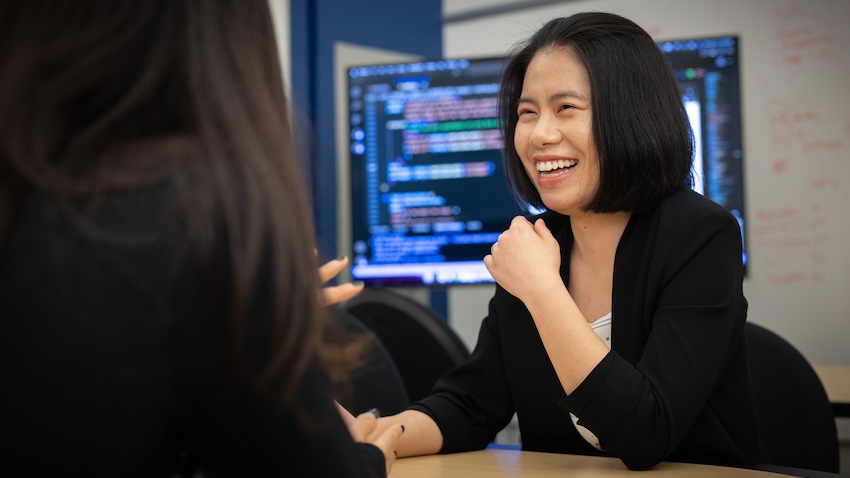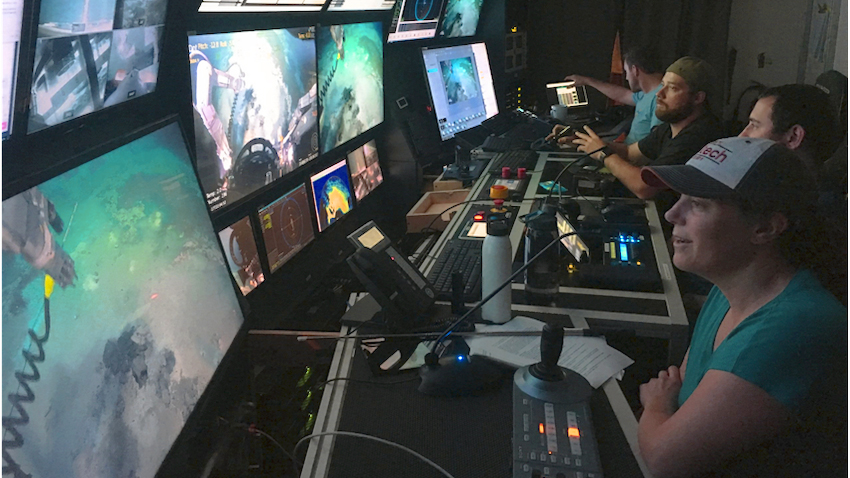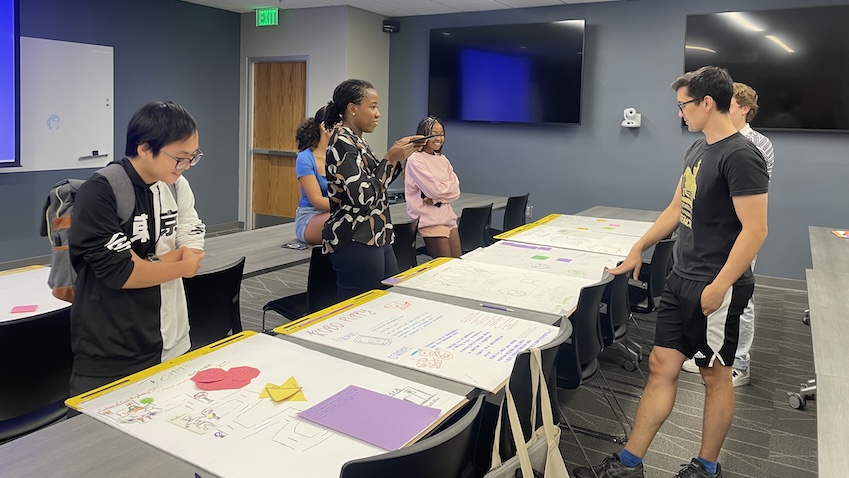
Commitment to Responsible Computing Among 2024 Highlights for School of IC
As the need to prioritize people’s well-being in artificial intelligence (AI) development becomes more apparent daily, Georgia Tech’s School of Interactive Computing (IC) spent 2024 leading the charge to advance ethics and responsible computing practices.
IC faculty and students worked throughout the year in venues worldwide, calling for real-world solutions that ensure emerging AI technologies are transparent and positively impact society.
These calls culminated in October when the School hosted its inaugural Summit on Responsible Computing, AI, & Society.
More than 120 academic and industry researchers attended the summit, where they discussed key topics at the intersection of AI and healthcare, sustainability, and other fields. They also discussed technologists' responsibilities in implementing interventions that benefit society locally and globally.
The two-day summit, held at Tech’s Global Learning Center, convened to discuss consequential questions like:
- Is society ready to accept more responsibility as greater advancements in technologies like AI are made?
- Should society stop to think about potential consequences before these advancements are implemented on its behalf, and what could those consequences be?
- What policies should be enacted for these technologies to mitigate harms and augment societal benefits?
Some of the most impactful research from the School’s faculty and students in 2024 reflected the goals emphasized at the summit. These are the top 5 stories of the year from the School of IC:

Experts Say AI Copyright Cases Could Have Negative Impact on Academic Research
Working with Deven Desai, the Sue and John Stanton Professor of Business Law and Ethics at the Scheller College of Business, IC Professor Mark Riedl called attention to the dilemma of AI and the lawsuits that have been filed against major technology companies alleging copyright violations.
Desai and Riedl co-authored Between Copyright and Computer Science: The Law and Ethics of Generative AI, a long-form journal article published in the Northwestern Journal of Technology and Intellectual Property.

Study Shows Election Data Visualization Design Can Be a Powerful Persuasion Tool
Just weeks before the 2024 U.S. Presidential Election, Assistant Professor Cindy Xiong presented a paper that shows data visualizations can be annotated to persuade audiences to adopt specific narratives.
The study found people tend to trust the information in election data visualizations, making them susceptible to narratives that visualization designers may use to achieve favorable outcomes.
The paper simultaneously promoted critical thinking, self-education among voters, and ethical guidelines for data visualization designers.

Visualization Tool Helps Oceanographers Predict Sediment Sample Hotspots
Microbial ecologists, geobiologists, and oceanographers are gaining more insight into how deep-sea microorganisms interact with their environment thanks to a new data visualization tool designed by Ph.D. student Adam Coscia.
Coscia designed DeepSee, an interactive web browser that can annotate and chart data using 3D visualization models and environmental maps. DeepSee also creates 3D data models under the sea floor using data interpolation, which estimates new data points based on the range of a set of known data points. Using the known data points, DeepSee fills in the blanks of the estimated data quality the researchers may find in nearby locations or further underneath the surface where samples were collected.

AI4GA Lays Groundwork for NSF-funded Nationwide K-12 AI Curriculum
Working on a multi-institutional team of investigators, Assistant Professor Judith Uchidiuno and other Georgia Tech researchers helped the state of Georgia become the epicenter for developing K-12 AI educational curricula nationwide.
New curricula introduced by Artificial Intelligence for Georgia (AI4GA) have taught middle school students to use and understand AI and equipped middle school teachers to teach the foundations of AI.
AI4GA is a branch of a larger initiative, the Artificial Intelligence for K-12 (AI4K12). Funded by the National Science Foundation and led by researchers from Carnegie Mellon University and the University of Florida, AI4K12 is developing national K-12 guidelines for AI education.

SKYSCENES Dataset Could Lead to Safe, Reliable Autonomous Flying Vehicles
If autonomous flying vehicles are to become a reality in the same way as self-driving vehicles, they will need sufficient training data sets to help them navigate.
However, few aerial image datasets exist that can adequately train the computer vision algorithms that would pilot these vehicles.
That’s why Georgia Tech researchers created a new benchmark dataset of computer-generated aerial images.
Judy Hoffman, an assistant professor in Georgia Tech’s School of Interactive Computing, worked with students in her lab to create SKYSCENES. The dataset contains over 33,000 aerial images of cities curated from a computer simulation program.
As computing revolutionizes research in science and engineering disciplines and drives industry innovation, Georgia Tech leads the way, ranking as a top-tier destination for undergraduate computer science (CS) education. Read more about the college's commitment:… https://t.co/9e5udNwuuD pic.twitter.com/MZ6KU9gpF3
— Georgia Tech Computing (@gtcomputing) September 24, 2024


